On March 11, 2025, a decisive workshop was held in Dakar, marking the start of a project to deploy air pollution sensors in schools in Senegal. Organized by Kaikai, in collaboration with various institutional and academic partners, this event brought together experts, government representatives, researchers, and teachers to address a crucial issue: improving air quality monitoring and raising awareness among younger generations about the dangers of air pollution.
In a context where air pollution is a major factor in respiratory and cardiovascular diseases, this project aims to strengthen the collection and accessibility of environmental data, but also to actively involve schools in an innovative educational and scientific program.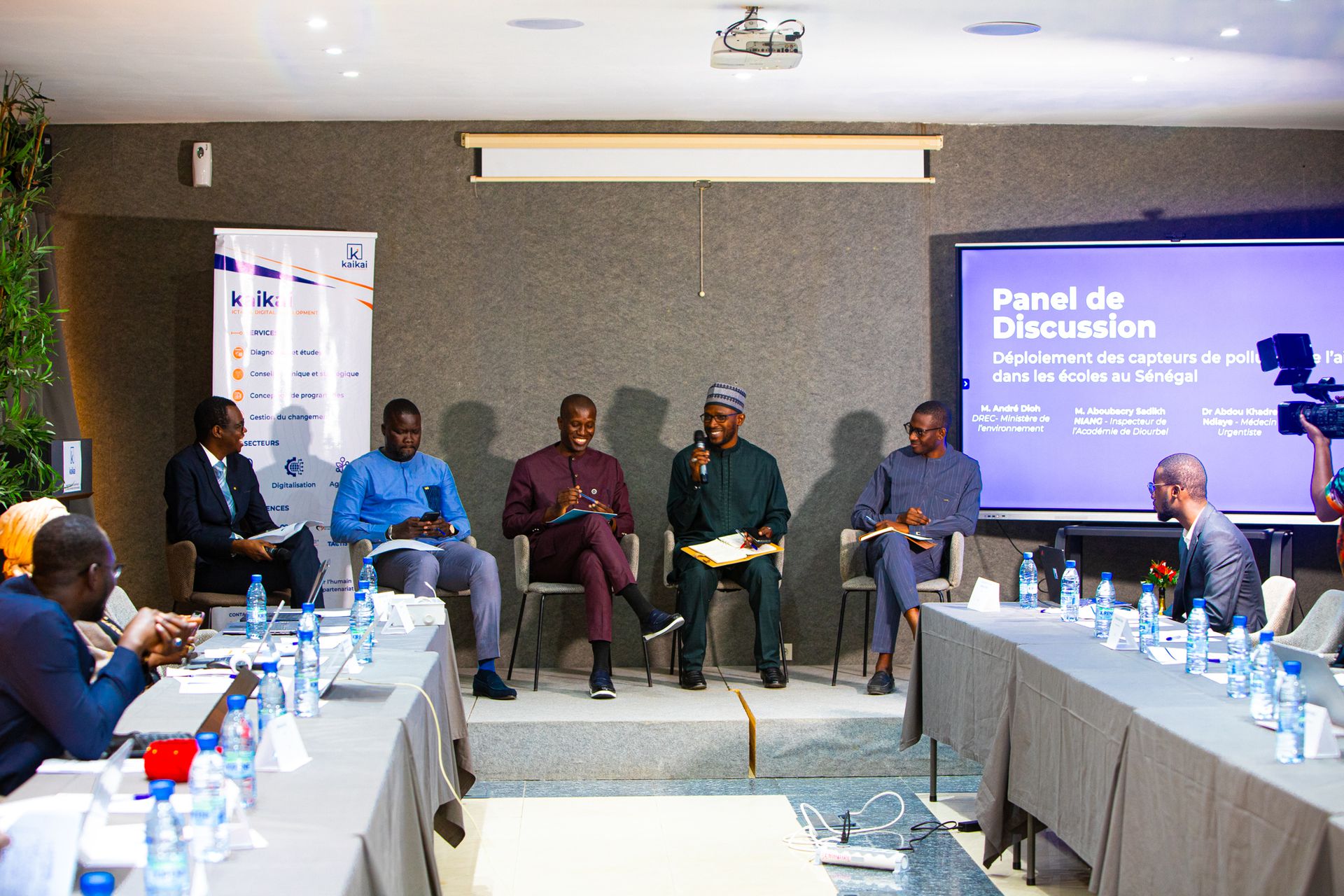
A unifying workshop: objectives and participants
The workshop aimed to:
Officially present the project and its strategic objectives .
Share the initial data collected and its implications.
Facilitate dialogue between stakeholders to ensure effective implementation.
Encourage a collaborative approach to data monitoring and exploitation.
Participants included representatives from:
The Ministry of the Environment (Directorate of Environmental Regulation and Control - DREC)
The Ministry of National Education and academic inspectorates from several regions
ANACIM (National Civil Aviation and Meteorology Agency),
University Cheikh Anta Diop of Dakar and University of Thies
From the private sector, notably Sonatel and experts in environment and public health,
Principals and teachers from the schools concerned
A structuring project for air quality monitoring
The project aims to deploy 50 low-cost pollution sensors in different regions of Senegal. These sensors will collect data on fine particles (PM2.5, PM10) and other air pollutants.
The main areas of focus for the project include:
Raising awareness among students and teachers about the effects of pollution on health and the environment.
Training in interpreting the data collected to better understand variations in pollution according to area and season.
Opening up data to researchers, communities, and decision-makers to better guide public policy.
 The first sensors have already been installedin several cities, including Dakar, Pikine, Saint-Louis, Richard Toll, Bargny, Diourbel, and Thiès. These installations have made it possible to detect trends and identify the most exposed areas.
The first sensors have already been installedin several cities, including Dakar, Pikine, Saint-Louis, Richard Toll, Bargny, Diourbel, and Thiès. These installations have made it possible to detect trends and identify the most exposed areas.
See the project presentation
The data are available at map.airgradient.com and on the data portal. Contact us to access the raw data.
Rich and constructive exchanges: experts committed to improving air quality
The workshop featured high-quality presentations that shed essential light on the challenges and solutions related to air pollution:
Aminata Mbow Diokhané : (Head of CGQA , Ministry of Environment)
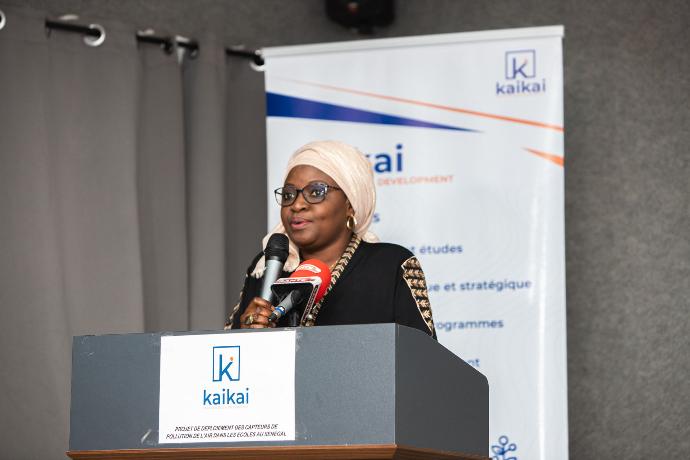 Ms. Diokhané opened the workshop by highlighting the impact of air pollution on children and the importance of raising awareness among the population, starting with schools. She also confirmed the Ministry of the Environment's commitment to this project, which complements the activities of the Air Quality Center.
Ms. Diokhané opened the workshop by highlighting the impact of air pollution on children and the importance of raising awareness among the population, starting with schools. She also confirmed the Ministry of the Environment's commitment to this project, which complements the activities of the Air Quality Center.
André Dioh (CGQA Modeler, Ministry of the Environment)
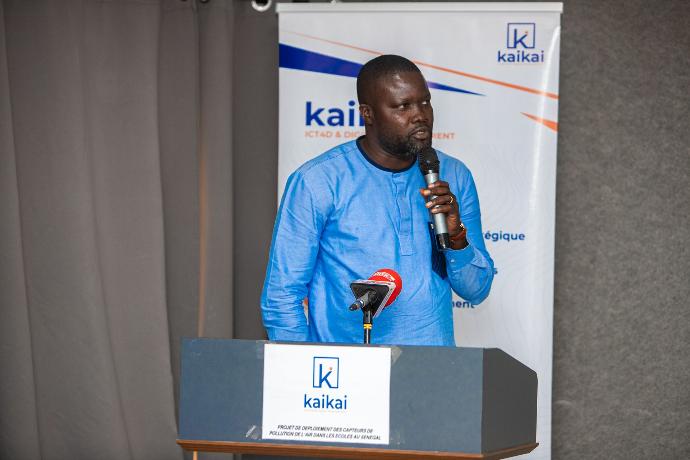 highlighted the shortcomings of the current system and stressed the importance of integrating new technologies, such as sensors, to address these shortcomings. (See the presentation for more details.)
highlighted the shortcomings of the current system and stressed the importance of integrating new technologies, such as sensors, to address these shortcomings. (See the presentation for more details.)Aboubacry Sadikh Niang (Diourbel Academy Inspector)
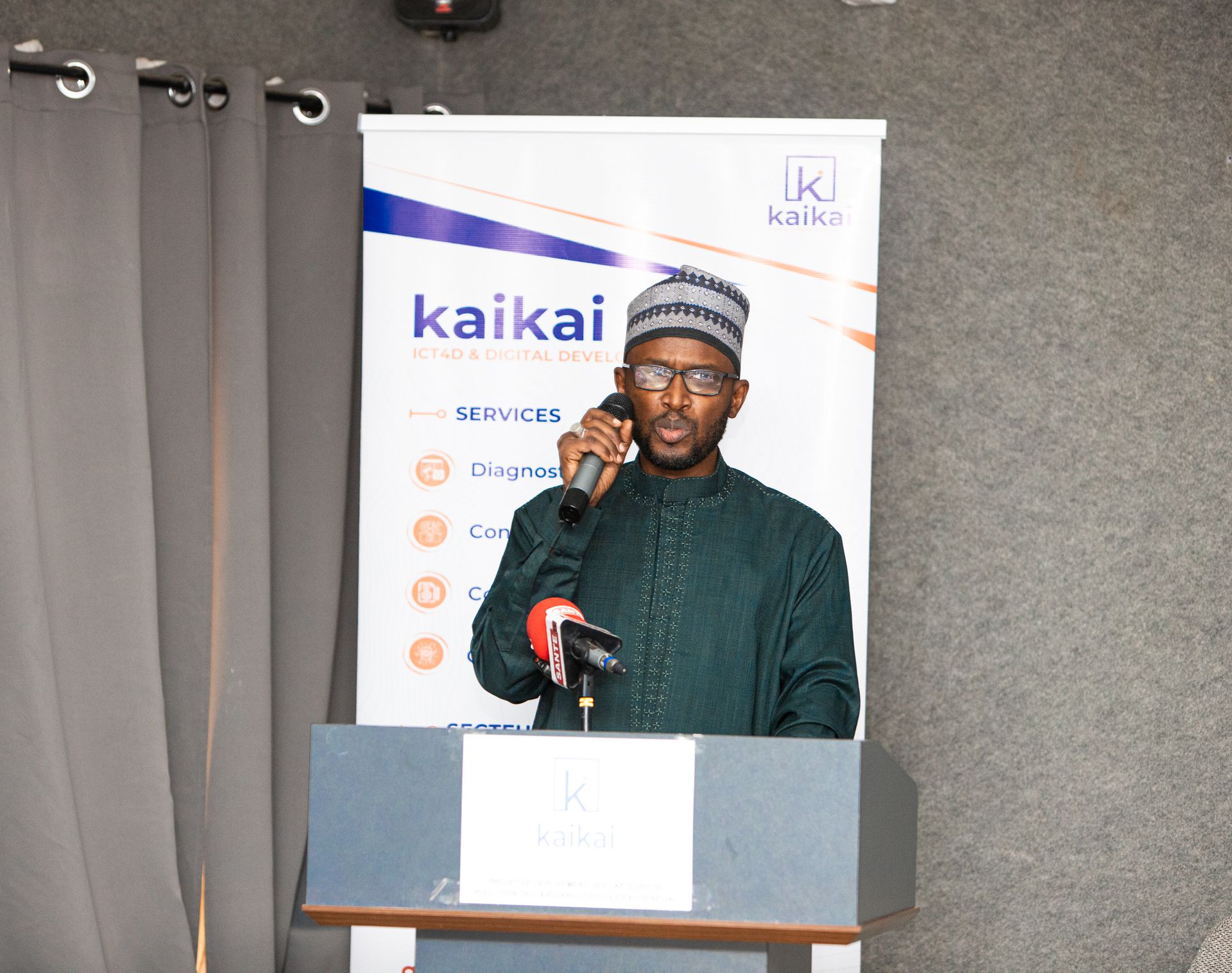 He demonstrated how schools can become key spaces for raising awareness, by educating students and involving the general public in the fight against air pollution. “Air pollution knows no borders!” he rightly pointed out, reminding us that this fight concerns us all, beyond geographical divisions. (See the presentation for more details.)
He demonstrated how schools can become key spaces for raising awareness, by educating students and involving the general public in the fight against air pollution. “Air pollution knows no borders!” he rightly pointed out, reminding us that this fight concerns us all, beyond geographical divisions. (See the presentation for more details.)Dr Abdou Khadre Ndiaye (Emergency Doctor, Matam Regional Hospital)
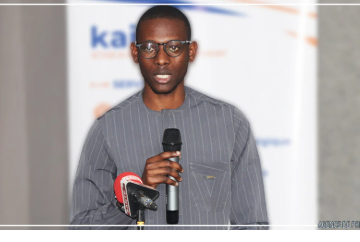 discussed the health impacts of air pollution, particularly on children. He detailed the most common respiratory diseases, such as asthma and chronic bronchitis, while sharing recommendations for better prevention of these conditions.(See the presentation for more details.)
discussed the health impacts of air pollution, particularly on children. He detailed the most common respiratory diseases, such as asthma and chronic bronchitis, while sharing recommendations for better prevention of these conditions.(See the presentation for more details.)Mamadou Simina Drame (Lecturer-Researcher, UCAD)
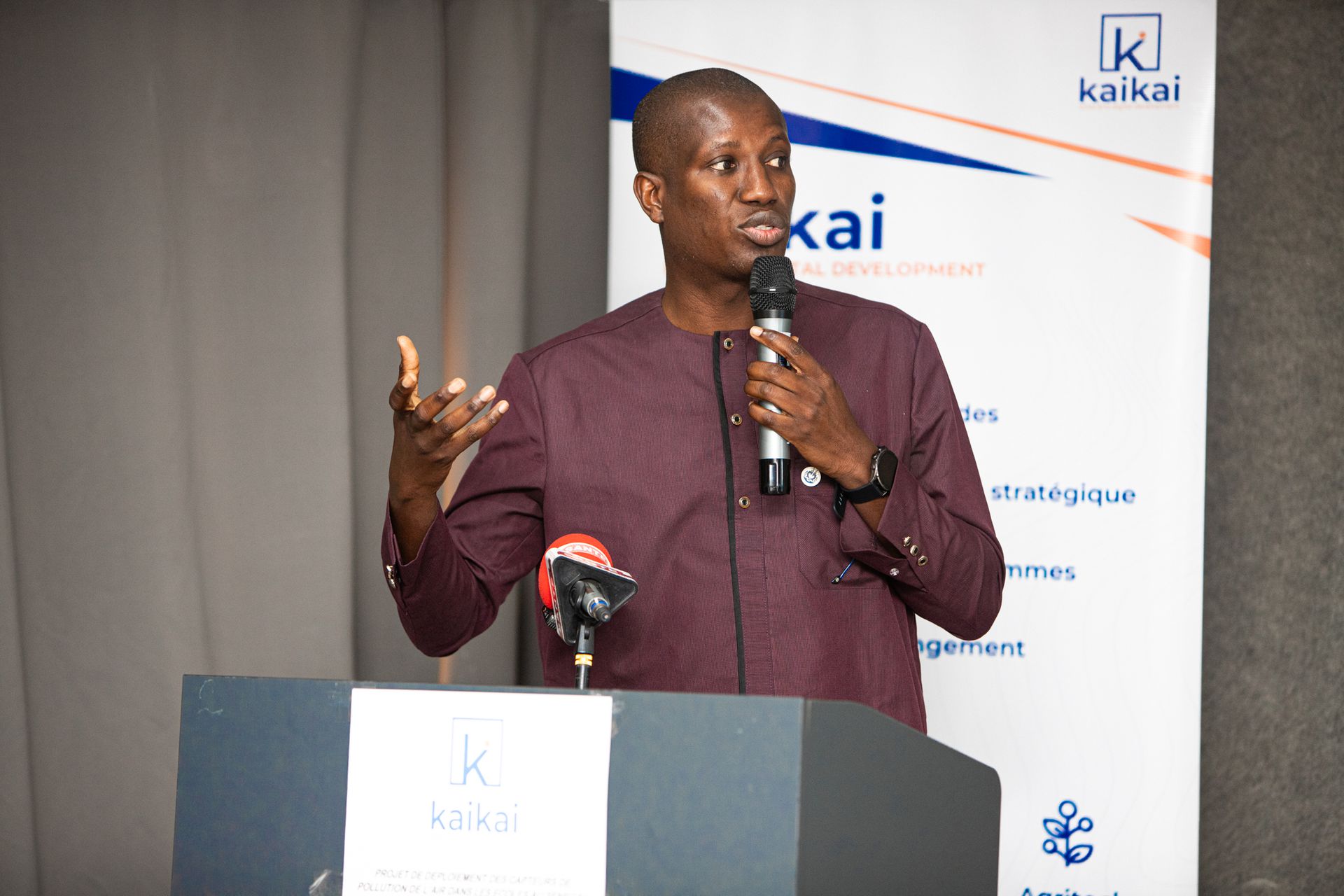
highlighted ongoing research on air pollution in Senegal. He presented existing data and explored the potential for improvement offered by the installation of sensors, enabling more accurate monitoring and a better understanding of pollution phenomena. (See the presentation for more details.)
A collaborative brainstorming
A brainstorming session was held to gather participants' ideas on two main themes, the results of which are as follows:
Criteria and sites for sensor deployment:
Presence of sources of pollution (road traffic, industry, dense urban areas, quarries, construction sites).
- Proximity of schools to polluting infrastructure.
- Accessibility for maintenance and stable power supply.
Areas representative of different environmental contexts (urban, peri-urban, and rural areas).
Selection of sites allowing correlation with meteorological data.
Data exploitation and dissemination:
Data sharing via a centralized platform, accessible as open data.
Development of interactive visualization tools accessible to the public.
Awareness-raising and training for teachers and students on data interpretation.
Use of educational materials to popularize the concepts of air pollution.
Collaboration with local authorities to integrate data into urban planning.
Integration of data into political and local decisions.
Dissemination of results through the media and social networks.
Establishment of the Monitoring Committee
A monitoring committee (see the presentation for more details ) has been set up to ensure the continuity of the project. Its roles include :
Sharing project reports.
Organizing bi-monthly meetings.
Managing an online discussion group.
Exchanging data to improve its accessibility and reliability.
Identifying synergies with other stakeholders.
Strong mobilization and concrete commitments
The stakeholders present expressed various commitments to support the project :
DREC: Data validation, validation of deployment sites, assistance in filling data gaps, dissemination of awareness messages and health recommendations, data correction through sensor co-location, centralization of microsensors.
ANACIM: Sharing of meteorological data, collaboration in the selection of strategic sites for sensor installation.
Academy Inspectors: Support in contracting with the Ministry of National Education, support in raising awareness among students and teachers, integration of the theme of air quality into educational training.
Ministry of Communication, Telecommunications, and Digital Technology : Alignment with the national open data policy, support in setting up data dissemination platforms.
Researchers: Support for data analysis and exploitation, implementation of impact studies, development of appropriate educational tools for schools.
Schools and high schools: Active participation in raising awareness and disseminating information on air pollution, integration of results into educational activities, involvement of science and ecology clubs.
Sonatel: Provision of an SMS communication service to inform the population about air quality, provision of connectivity to installed sensors.
Conclusion: A major step forward for air quality in Senegal
he launch workshop marked a crucial step in the implementation of this ambitious project. By combining technological innovation, stakeholder engagement, and awareness-raising among younger generations, it paves the way for better air pollution management in Senegal.
The next phase will consist of expanding the deployment of sensors and strengthening stakeholder training. This project is a model of effective collaboration between the public, private, and academic sectors, with the ultimate goal of a healthier environment for future generations.
They talked about the project
Several media outlets covered the workshop, ensuring optimal visibility for the project:
Television news : RTS / SENTV (Wolof) / TFM (Français) / TFM (Wolof) / SANTE TV
Online Press : APS / SENEGO / MSN / NDARINFO / VIVAFRIK / Sud Quotidien
Daily newspapers : Sud Quotidien / Lii Quotidien / Journal l'AS / Walf Quotidien